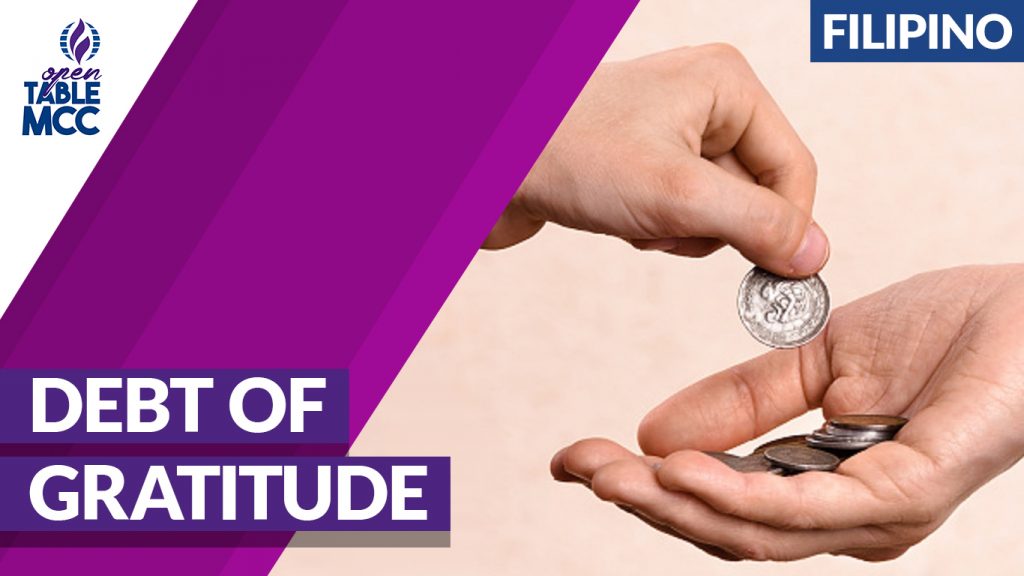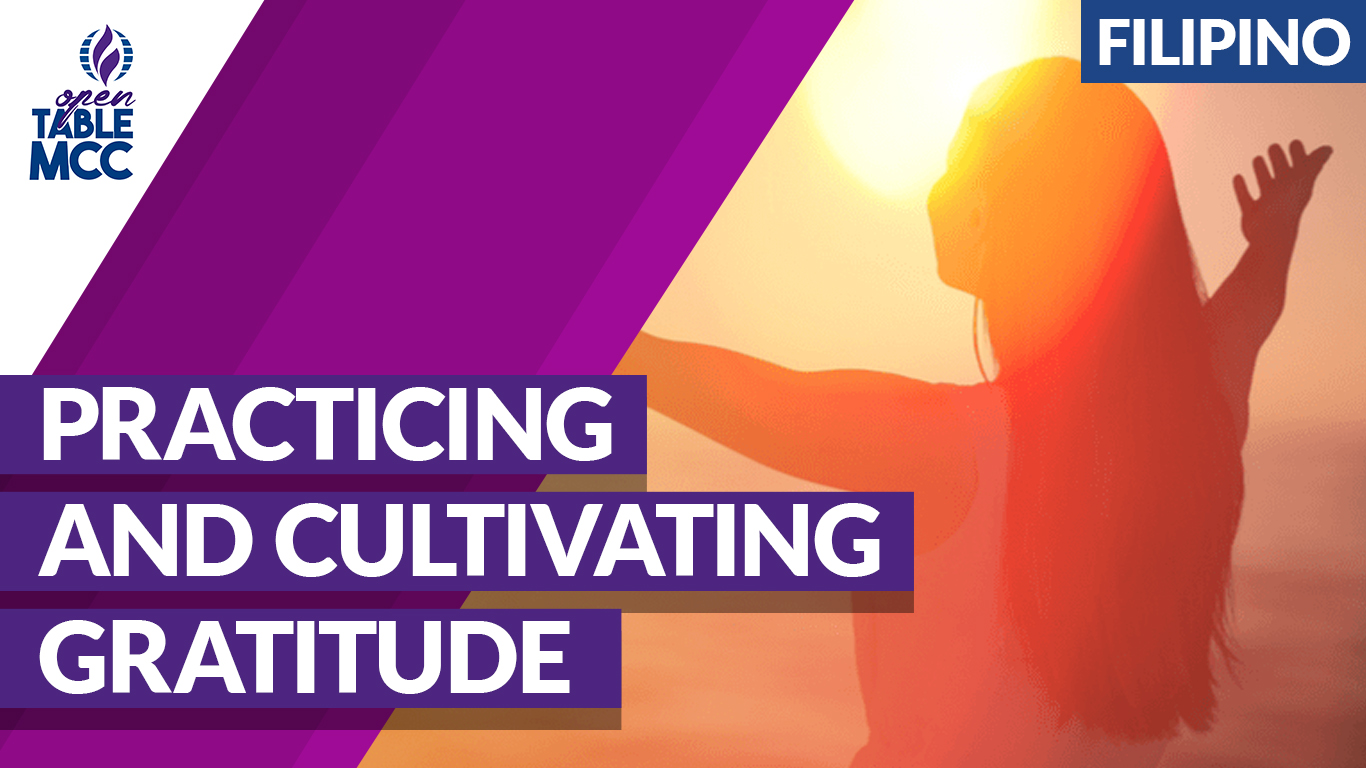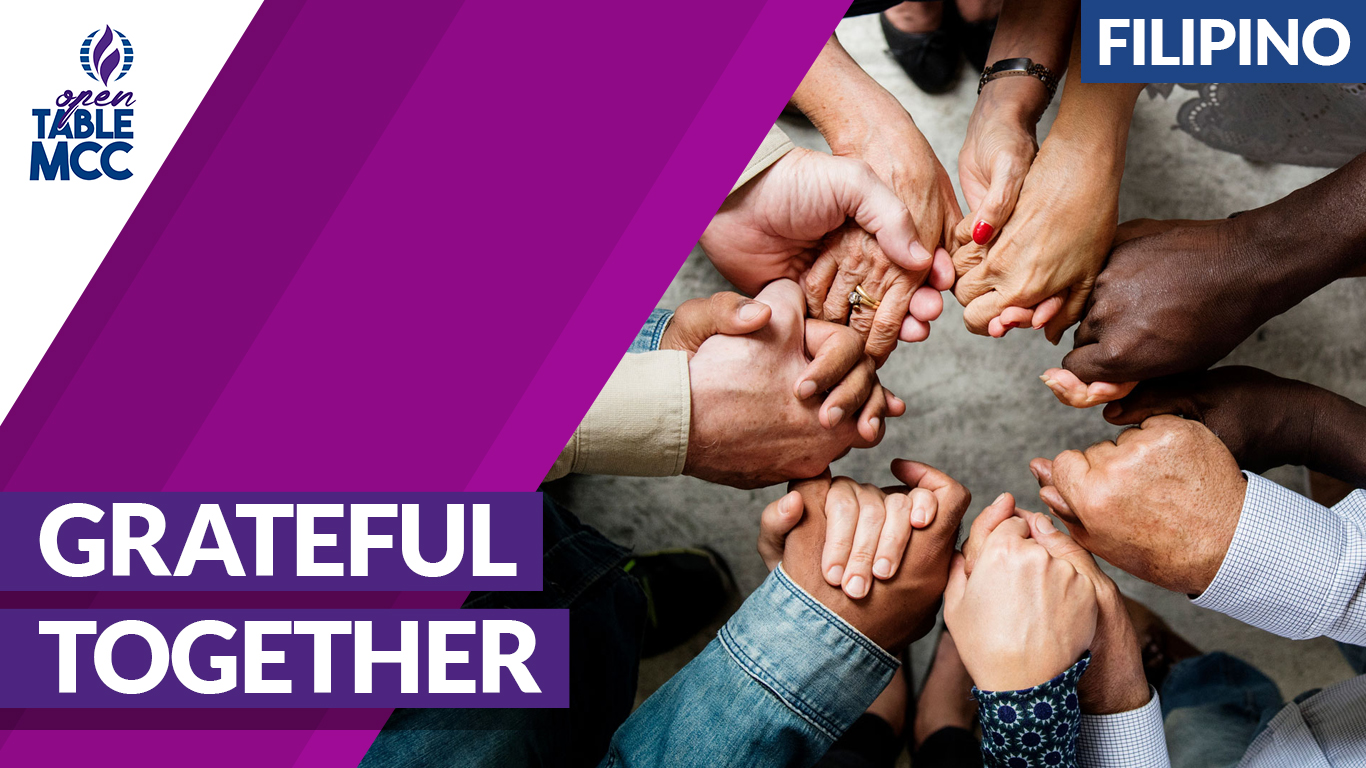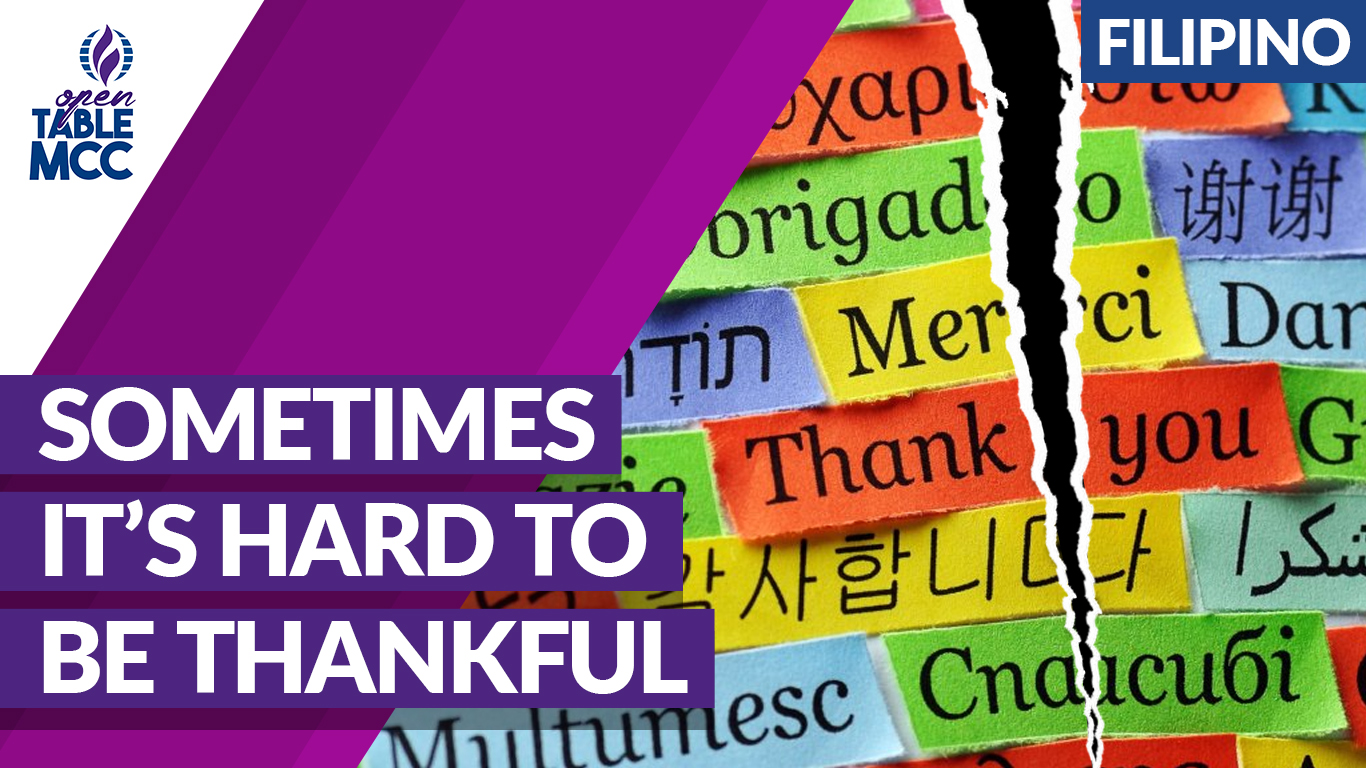How do we make sense of hope for the coming year? How do we begin the year of 2021 with hope after everything that has happened in 2020 and the pandemic will continue to rage on going into 2021? Reading on the work of Scholar and Theologian, Diana Butler Bass, I found that gratitude does not negate or downplay the struggles and challenges we have faced and will be facing. On the contrary, gratitude will also give focus on the reality of our struggles and challenges together with the reality of our shared and mutual response. Hence the first part of this sermon series is to recognize that it is very hard to be thankful when faced with pain, sorrow, sickness or even death. Gratitude is like a person trying to find a light, any light in a pitch black road or room. Looking for the light or any light in a darkened place actually makes us more aware of the darkness that is all around us. However, it also heightens our sensitivity against danger or road blocks and it allows our eyes to adjust in that darkness to be able to still see. It is hard to make sense or to talk about hope. It seems to be so abstract or ethereal but grounding hope in gratitude helps us to have some solid grounding to walk on or a small yet clear light to see. It is with this that we are using Gratitude as our framework for hope for the coming year: Gratitude as explained, elaborated and reflected upon by Diana Butler Bass.
Zacchaeus thought that gratitude was a political structure of benefactors and beneficiaries that he could manipulate for his own benefit. Then Jesus called him down from that tree and invited him to a table. ‘Stop climbing, Zacchaeus. Come and sit.” Whereas Rome practiced gratitude as a hierarchy of political and economic obligation, of debt and duty, Jesus envisioned gratitude as hospitality of mutuality and relationship, of gift and response. Jesus opened the door for Zacchaeus to “come down” from his old life, to stop participating in a corrupt system of gratitude that oppressed his own people.
Around this table, gifts pass without regard to payback or debt. Everyone sits. Everyone eats. And recognizing that everything is a gift, all are grateful.
If gifts precede benefactors, there is no expectation to return the favor (Because givers are simply passing on a gift, and other gifts will come their way). Receivers are freed from the “debts” of gratitude and may graciously pass whatever gifts they can on to others instead of paying back a benefactor. Jesus taught this very clearly: “If you lend, expect nothing in return” (Luke 6:34-35). The free movement of gifts – in a nonhierarchical way – is the very heart of Christianity. According to Leithart, givers impose no debt, and the only debt of receivers is to love others.
He refers to this as an “infinite circle” of gratitude and contrasts it to the closed system of obligation that bound people into oppressive forms of patronage and pay-back. Gratitude is not about manners and courtesy. It is never truly private. It is about the nature of society. It is deeply and profoundly political and opens us to the revolutionary idea of a debt-free community that shares in the mutual benefit of creation’s gifts while unmasking privilege and permanently undoing slavery.
Grateful: The Subversive Practice of Giving Thanks by Diana Butler Bass
I give you a new commandment, that you love one another. Just as I have loved you, you also should love one another. By this everyone will know that you are my disciples, if you have love for one another.
John 13:34-35 (NRSV)
Podcast: Play in new window | Download
Subscribe: Apple Podcasts | Spotify | RSS



